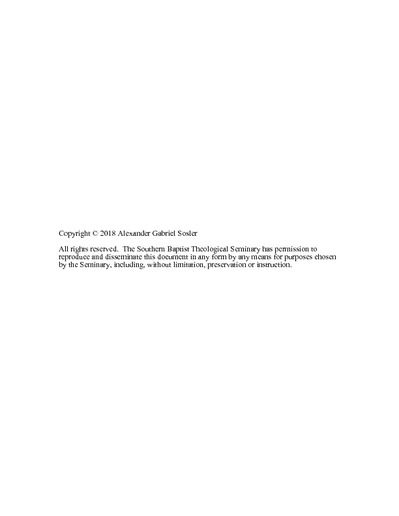What Is Christian Higher Education for?: An Assessment of Teleological Priorities at Selected Liberal Arts Institutions
Subject
Christian College Consortium (U.S.)Christian universities and colleges
Christian education
Church and college
Abstract
The intent of this study was to investigate the teleological priorities of Christian higher education. As a sample size, the study drew from the Christian College Consortium that features leading liberal arts institutions.
From a review of the literature, four historical epochs emerged with different defining features: the age of faith, the age of reason, the age of industrialization, and the age of feeling. Each age exhibits different priorities and different anthropologies, and they all impact the landscape of the current higher education field. In many ways, the university has become a multiversity. However, as the study argues, the Christian worldview has the resources to reunify the task of education by pursuing a better goal while not neglecting the tradition from which the university was founded. Drawing from the contribution of James K.A. Smith and his liturgical emphasis, this better goal is to love God and to love neighbor by including all epochs, while recognizing that human beings exist primarily as lovers—not thinkers, not producers, and not feelings. What one loves will shape the pursuit of truth. The precedent literature led to the development of an original scale to place different priorities that were considered in the next section of the research.
The resultant study led to a two-phase qualitative study. The first step was to do a text-based analysis of the documents of each representative college with a special emphasis given to mission statements. The study also considered website and catalog information. With the text-based portion information, the study then placed where institutions seemed to lean on the scale aforementioned. Following this phase, the final phase was a semi-structured interview with a representative from each of the participating institutions in the Christian College Consortium. This was to elicit further detail on priorities, as well as to compare and contrast the text data with the interview data.
This study pushes the conversation forward in the philosophy, goals, and understanding of students in the context of Christian higher education. Furthermore, evaluation of the research led to a significant application to the value of faculty, curricular and co-curricular reform, and the means of learning pursued with Christian love.

